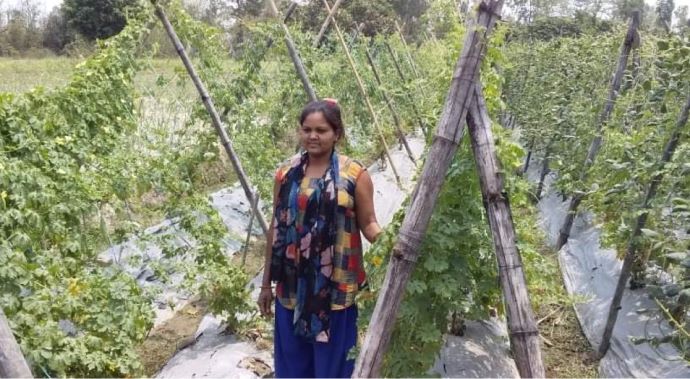Making our Food System Climate Resilient, Inclusive and Sustainable

Making our Food System Climate Resilient, Inclusive and Sustainable
Madhav Karki*, Sunil Yadav** & Subash Karki***
*Adjunct Professor, IOF, Tribhuwan University and Distinguished Fellow, CGED-Nepal
** Project Officer, CDAFN, Bardibas
*** Project Officer, CGED-Nepal
For generations, farmers in Nepal have been innovating and practicing an integrated traditional farming system to make their food system resilient to climate change, natural hazards and land degradation as well as inclusive to the society.

Increasing temperature, frequent and longer cycle of floods and droughts, and poor extension and marketing infrastructure are posing new challenges. Farmers are responding to these changes by modernizing traditional practices by integrating with modern scientific knowledge through different forms of agroforestry and ecological agriculture techniques based on the judicious management of food, water, climate, and biodiversity nexus or connections. Increasing use of improved variety of seeds, modern farming equipment and land pooling practices are helping to address water, labour, land and fertilizer shortages. This blog highlights the results of participatory assessment of a pilot front-line demonstration and reports success stories achieved through the efforts of lead farmers. These successful pilots can be both scaled up and scaled out that can make local food system resilient, inclusive, healthy and accessible. Diverse knowledge based technical capacity building, agro-technology integration and local farming expertise development transformed extension service in that the Agriculture Knowledge Centre staff could extend their knowledge while also learning from the farmers from their experiences.

This cross fertilization of knowledge and skills benefitted both the farmers and subject matter specialists. Preparing local technical farm leaders and using them as change agents was made possible through these participatory extension pilots. The role of grass roots based NGOs was to upgrade and use the farmers’ innovation skills and capacity to facilitate the supply of critical agriculture inputs such as fruit saplings, vegetable seeds, organic fertilizer and bio-pesticides and deliver timely extension services. To manage the water deficit in rain fed farms, micro-irrigation, mulching, and plastic tunnel farming were promoted. Farmers were able to convert Covid19 related challenges into opportunities by switching to off-season and all-season vegetable and poultry farming as prolonged lockdowns created market for local products. The front-line demonstration based extension and communication enabled increased community participation and exchange improving coordination among research, extension and development personnel, enhancing sustainability, and encouraging co-production and networking among different stakeholders. It was concluded that the practice of group farming pooled fragmented holding together making the economy of scale viable as well as extension service more accessible. The practice increased farm income, enhanced women’s participation and facilitated the rapid transfer of new farming technologies.
